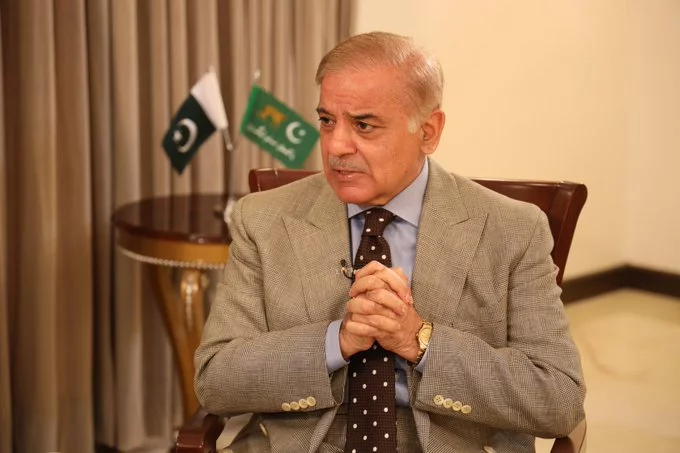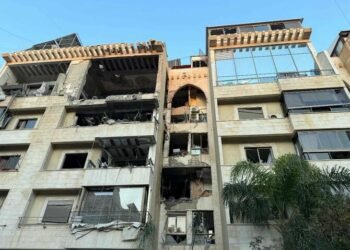By Ghulam Haider
Few terms like dwindling foreign exchange reserves, tumbling exports, skyrocketing inflation, unabated fiscal and current account deficit are synonym to Pakistan’s plummeting economic condition.
Always on the hunt for exploring new avenues for sourcing funding and loans with break-neck conditions has been the traditional venture for every government in power in the country of around 230 million people, with almost 60 per cent of the total population being below 30 years of age.
The exhausting of Pakistan’s creditors and lenders include Breton Woods Institutions to the International Monetary Fund (IMF) to the World Bank to the Asian Development Bank (ADB) and others.
This is because of the slant-vision policies of the successive regimes coupled with global economic meltdown have forced closure of startups, businesses and 250 plus textile mills in Pakistan, which is rendering hundreds of the people jobless.
As Pakistan’s political and economic situation continue to deteriorate, concerns for the country’s Prime Minister Shehbaz Sharif are rising.
A small meal delivery service called Jovi has stopped its operations because of Pakistan’s ambiguous political and socio-economic situation, which is causing a choppy market and excessive prices.
After three years of operating in Pakistan, mobility startup SWVL has wrapped up operations in Pakistan completely amid a global downturn in investments.
Indus Motors is continuously shutting down production at times while Suzuki Motors Ltd continuously halting production due to LCs issue. A rare thing happened last week when Honda closed motorcycle manufacturing plant for the first time due to restrictions which adversely impacted clearance of import consignment that affected the inventory levels.
Airlift and Car First have also shut down their operations in Pakistan. Likewise, Eli Lilly Pakistan Pvt. Ltd, the manufacturer of Humalog medical insulin that is used to treat Diabetes Mellitus has shut its manufacturing offices in the country.
Except for Lahore, Uber stopped its services in five major cities of Karachi, Islamabad, Faisalabad, Multan and Peshawar respectively.
KIA motors, continuously closing production while company operated showroom have been closed permanently.
Baluchistan Wheels Limited stopped its operations due to poor economic conditions while Bolan Casting which manufactures and sells casting for tractors and automotive parts halted production due to deteriorating economic conditions of the country.
Dawlance Pakistan laid off 1000 employees & reduced its operations while Nishat Chunian Limited shared a notice to PSX (Pakistan Stock Exchange) to temporary shut down its 51,360 spindles after one month due to ongoing market condition. The firm has installed capacity of 219,528 spindles and 2,880 rotors in its spinning division. Nishat Chunian Limited is engaged in the business of spinning, weaving, dyeing, printing, stitching, processing, doubling, sizing, buying, selling and otherwise dealing in yarn, fabric and made-ups made from raw cotton, synthetic fiber and cloth, and to generate, accumulate, distribute, supply and sell electricity.
The incompetency of country’s economic managers is adding to the woes of the people who are finding it difficult to make both ends meet in the testing economic times. The tax collection shortfall is getting serious due to the closure of industries and letter of credit issues.
Despite inflation touching 30 per cent, reportedly, the Federal Board of Revenue is missing Rs. 400 plus billion target out of the Rs. 965 billion target of December.
The unabated cross-border smuggling of dollar to Afghanistan has been leading one of the leading causes of local currency devaluation in Pakistan. But the government functionaries seem to have entirely different priorities.
“We are losing close to $2 billion to Afghanistan on a monthly basis” Malik Bostan, president of the Forex Association of Pakistan, adding that around $1 billion is the import value from Afghanistan, paid in dollars and $1 billion is smuggling each month.
The rupee is nosediving while dollar is flying high. The grey market has pushed the dollar exchange rate to over 250 despite government claims of holding it at Rs. 225. This is the responsibility of the government to offer one exchange rate, so legal transfers flourishes.
The IMF has given Pakistan around two weeks to complete all prior conditions for the program renewal which include free & market driven exchange rate, show that the FBR will achieve tax target of Rs. 7470 billion and implement circular debt management plan by increasing gas & electricity prices.
Ishaq Dar, Pakistan’s finance minister, promised investors at the Pakistan Stock Exchange (PSX) this Wednesday that the nation would not go into default. He regretted that the nation had come to a place where it shouldn’t be and said that it was unfortunate. Dar assured that Pakistan would survive and is managing itself but conceded that the economy was in a “tight position”.
It is unfortunate that none of Pakistan’s ruling dispensations ever have had an iota of hesitation from knocking the doors of China (with whom Islamabad has unfathomable friendship that is deeper the seas and higher than Himalayas), Saudai Arabia, United Arab Emirates (brotherly states where Pakistan’s rulers) and some other lenders to seek finances in peace and crisis-like situations.
Pakistan’s loan-get happy rulers have been found ‘selling’ national assets including airports, buildings and highways to access loans, which ultimately make life miserable for the common, but they provide ‘much needed impetus’ to the personal well-being of the powers that be.
Pakistan’s economic situation is deteriorating as all major indicators are performing worse and pressure is continuously exerting on the foreign exchange reserves amid delay in inflows from the international financial institutions.
Pakistan’s economy is in critical condition due to macro-economic mismanagement; large budget deficit, and huge internal/external debt1, resulting in Pakistan knocking at the doors of IMF, again.
In the current, where economies and democracies are extremely progressive, some states have still a flawed system of governance. Unfortunately, the state of Pakistan is one among these countries facing multifaceted and multilayered challenges.
Due to the reason governance has become an enigma. Apart from the issues of governance, security and stability weak economy is also the outcome. Over the time, Pakistan has failed to develop a framework for efficient governance with stable institutions where actual spirit of democracy could be realized that lies in decentralization of power.
While the economy continues to bleed profusely, fragile security and volatile political environment has further exacerbated the problems. The alarming and precarious economic vulnerabilities give rise to many fundamental questions; as to whether Pakistan’s impoverished economy has its root cause in its defense needs and expenditures or there are other factors which lie at the bottom of this economic malaise?
All major economic indicators have recorded negative growth except current account deficit. Similarly, the country’s foreign exchange reserves are also on the declining side mainly due to the repayment against previous loans.
Minister of State for Finance and Revenue, Dr Aisha Ghaus Pasha had also admitted on Friday that all is not well on the economic front and the country is under stress, but would not default on the external obligation.
While briefing the National Assembly Standing Committee on Finance, the minister categorically stated that the IMF programme is not suspended but there are roadblocks including recovery of energy prices including electricity, gas, rising circular debt, subsidies as well as tax collection.
“The problem with our economy is that we are earning less and spending more,” said the minister, adding that our exports are not increasing and imports are increasing and the boost was not seen even after getting GSP status. How the country can be run with $70 billion imports against the combined $60 billion exports and remittances,” said the minister, adding that till the structural reforms, things would not get better.
Currently, Pakistan is in a dire macroeconomic crisis. It is spending more on imports than it receives on exports, with its persistent rise in the current account deficit. The major driver of this rising current account deficit is an expanding trade deficit, which is mostly due to the rising imports and depleting exports.
Despite the massive depreciation in the rupee is another worrying factor ailing Pakistan’s economy. The double-digit inflation rate has now reached 28 per cent, which is a record level high over the last five years.
In addition, Pakistan’s defense spending and fight against extremism further burdens the deteriorating economy. Along with a depreciating rupee that has made imports costlier, low foreign investment due to Pakistan’s volatile political situation and security issues have also severely hit its foreign exchange reserves.
Flaws in taxation and its collection is another major grey area of Pakistan’s economy. According to the State Bank of Pakistan (SBP), the sharp decline in revenue can be attributed to a fall in development spending, reductions in income and corporate taxes and taxes on petroleum products.
Similarly, Pakistan Tehrik-e-Insaf (PTI) government led by the now ousted Prime Minister failed to make any significant progress in enhancing exports. In its recent report captioned “Pakistan @100: Shaping the Future,” the World Bank held weak governance responsible for the fiscal deficit. Pakistan’s poorly regulated financial system facilitates tax evasion, which contributes significantly to the growth of the fiscal deficit. Pakistan have an enormous task ahead to steer its struggling economy out of a macroeconomic crisis by fostering economic development.
With its domestic industry in ruins, Pakistan has not been able to rely on consistent foreign investment for more than stopgap measures. However, relying only on foreign aid and friendly countries for loans is not enough.
The way forward
To make a significant impact on the current account deficit, Pakistan needs to ensure an investment-friendly environment that attracts more foreign direct investment (FDI), instead of relying so heavily on foreign aid.
According to the World Bank’s Ease of Doing Business report, Pakistan ranks 136th out of 190 economies. To improve this ranking and draw more investment, Pakistan should ease customs laws and regulations, improve the security of the country and rebrand and boost its international image as a desirable destination for tourism and industry alike. It should also encourage domestic investment through more flexible tax policies, particularly targeting small and medium-sized enterprises (SMEs).
Pakistan also needs to focus on building its domestic industry to expand its export portfolio and enhance its competitiveness in the international markets. Pakistan is ranked 107th out of 140 on the Global Competitiveness Index (GCI), which measures the performance of countries in indicators such as infrastructure, ICT adoption, macroeconomic stability, labor market, skills, financial stability, innovation capacity, etc.
The low ranking signifies that the Pakistani government needs to take measures to stimulate economic growth and provide favorable business environment. The country’s ongoing energy crisis, which has caused significant losses in industry, has led factory owners to increasingly relocate to countries such as Vietnam, Bangladesh, Malaysia and others.
Moreover, since its exports currently lose out to low-priced, good-quality products from countries like China and Bangladesh, Pakistan needs to modernize its industrial sector by establishing new plants and equipment to enhance global integration. It can do this by investing in research and development to encourage product innovation and enhance labor productivity.
On top of these issues is the larger question of Pakistan’s failure to expand its export portfolio beyond a few low value-added products such as textiles, rice, surgical goods, carpets, sports goods, and leather items, which is one of the largest factors behind its balance of payments deficit.
Broadening the country’s export portfolio and exploring new export destinations such as Eastern European and Central Asian countries could revitalize foreign exchange earnings. As a security-oriented state, Pakistan’s priority has never been the economy, but it now needs to focus more on geoeconomics over geostrategy.
Currently, Pakistan is not taxing its agriculture sector and large businesses are often given big tax breaks. Hence, Pakistan needs to broaden its tax base – by taxing the agricultural produce of landlords with big land holdings and stop giving tax amnesties to big businesses – instead of overburdening current taxpayers, improve fiscal transparency, and strengthen tax collection coordination at the national and provincial levels to ensure that revenue targets are met.
Given the global scenario, coming times are going to be tough for once stronger economies and Pakistan’s condition is predicted to depreciate further, causing inflation to rise. Pakistan’s economic crisis cannot be resolved overnight.
Support from the IMF and friendly countries like Saudi Arabia, China and the UAE will only provide some breathing space in the short term to its shattered economy. Introducing drastic reforms in agriculture, promoting manufacturing by creating a more investment-friendly environment, broadening its tax base and encouraging innovation and modernization in export-led industries are just some of the most urgent measures the government can take to address the growing fiscal and current account deficit.
Pakistan must take advantage of this moment of hard-won reprieve by building a truly stable and sustainable economy before it once again finds itself digging its own economic grave – and that of its people.
Pakistan stands with a staggering population of over 230 million, out of which youth constitute 63 per cent, making Pakistan the fifth youngest country in the world, 150th out of 189 countries in the human development index, home to third largest population of stunted children under five, 77th amongst 109 countries in food security index, with a huge 44 per cent children remaining out of schools. While every government has propagated its agenda and fixed priorities to address short term issues relating to economy and national security, a wholesome solution has not been found, to arrest shifting priorities with every regime change.
Successive governments have been unable to put the country on the path of a sustained long-term development. Due to the national security dilemma, the focus has been shifting drastically with little benefit to Pakistan’s economy and security as a whole.
The changing role of state, to act as a linking pin of processes of planning, consultation, negotiation and decision making involving diverse players, is a must.








 United Arab Emirates Dirham Exchange Rate
United Arab Emirates Dirham Exchange Rate

